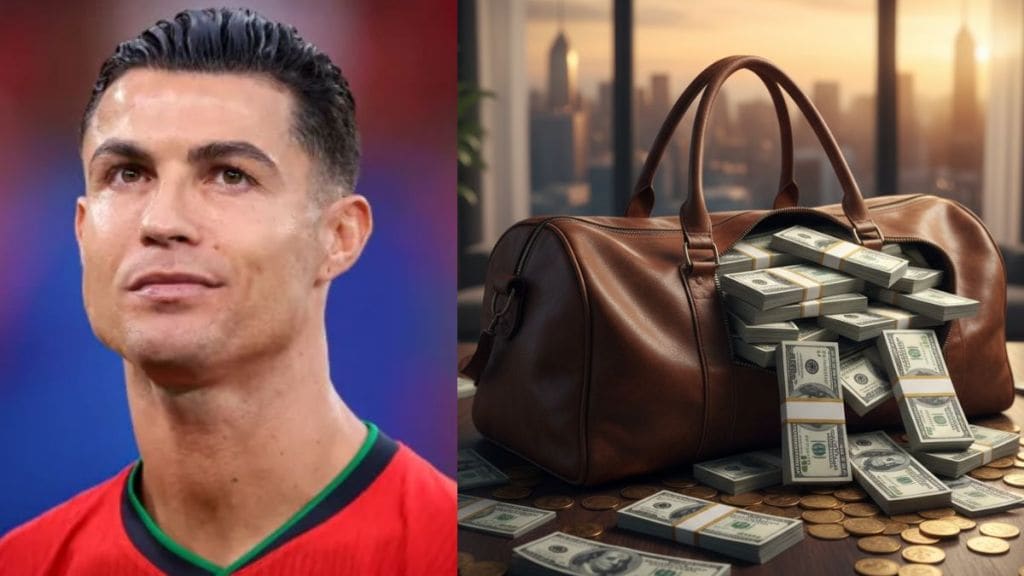Cristiano Ronaldo has reached a monumental milestone in his career, he is officially a billionaire. The 40-year-old Portuguese legend, already known for his dazzling performances on the field, now stands among an elite group of athletes whose net worth has surpassed $1 billion.
His financial ascent is backed by an extraordinary contract with Saudi Pro League team Al-Nassr, is just the latest chapter in his ever-expanding empire.
However, behind Ronaldo’s incredible wealth lies a mastermind, Miguel Marques, the 52-year-old wealth manager who has been quietly guiding the football star’s financial decisions.
While Ronaldo’s fame attracts millions of eyes worldwide, Marques remains a discreet and pivotal force behind the scenes, ensuring the protection and growth of his client’s $1.4 billion fortune.
Who is Miguel Marques?
Ronaldo’s path to financial greatness was paved with strategic investments, meticulous planning, and commitment to his brand.
But none of this would have been possible without the expertise of Marques, a private banker whose low-profile work has allowed the footballer’s empire to flourish while avoiding public scrutiny.
Marques operates from an office in Lisbon, just above the Louis Vuitton flagship store on the prestigious Avenida da Liberdade.
His firm, LMcapital Wealth Management, helps clients manage their fortunes with a high degree of discretion. Having built a career in the banking sector, most notably with Anglo Irish Bank Suisse, which was later acquired by Hyposwiss—Marques is no stranger to handling the vast wealth of high-net-worth individuals.
Ronaldo’s portfolio
Ronaldo’s journey to becoming the first billionaire footballer has been largely created by both his playing contracts and a series of lucrative endorsement deals.
As of 2023, he signed a contract extension with Al-Nassr worth an eye-watering $400 million over two years, which boosted his net worth significantly. However, his financial story does not just rely on his on-field earnings.
Through partnerships with global brands like Nike, Castrol, and Armani, Ronaldo earns a considerable portion of his wealth, including an $18 million-a-year deal with Nike that stretches over a decade.
His off-field ventures also include a string of investments, ranging from hotels to sports clubs, with Marques playing a key role in organising many of these deals.
For example, Ronaldo’s quiet involvement in the City of Padel, a Lisbon-based racket club, was facilitated by Marques, who helped set up the meetings with investors that made the project a reality.
But perhaps one of Ronaldo’s most personal investments is a large plot of land in Quinta da Marinha, a luxury golf resort on Portugal’s coast.
Marques arranged the purchase of the 9,000-square-meter property without disclosing Ronaldo’s identity to the sellers until the deal was complete. This focus on privacy speaks to Ronaldo’s desire for a secure and low-profile life outside of the spotlight.
What makes Ronaldo’s relationship with his wealth manager particularly unique is the deep level of trust and loyalty that defines their partnership.
Unlike many high-profile athletes, who often have a sprawling team of advisers and agents, Ronaldo prefers to keep a small, trusted circle of confidants, people he believes will act with the utmost discretion. Marques, in particular, has earned a place within this inner circle.
While Cristiano Ronaldo’s financial dealings are a testament to his business acumen, it is Miguel Marques’ discretion and meticulousness that have allowed his wealth to grow and remain protected.
In an era where many celebrity athletes are quick to flaunt their riches and investments, Ronaldo’s more private approach is deliberate.
Marques has consistently operated behind the scenes, carefully managing high-profile assets such as the Pestana CR7 hotel chain, which has locations in Lisbon, Madeira, and even Manchester, where Ronaldo’s career truly took off with Manchester United.
His role in handling these projects and investments has helped Ronaldo diversify his wealth across several sectors, ensuring it remains resilient in the face of changing market conditions.


